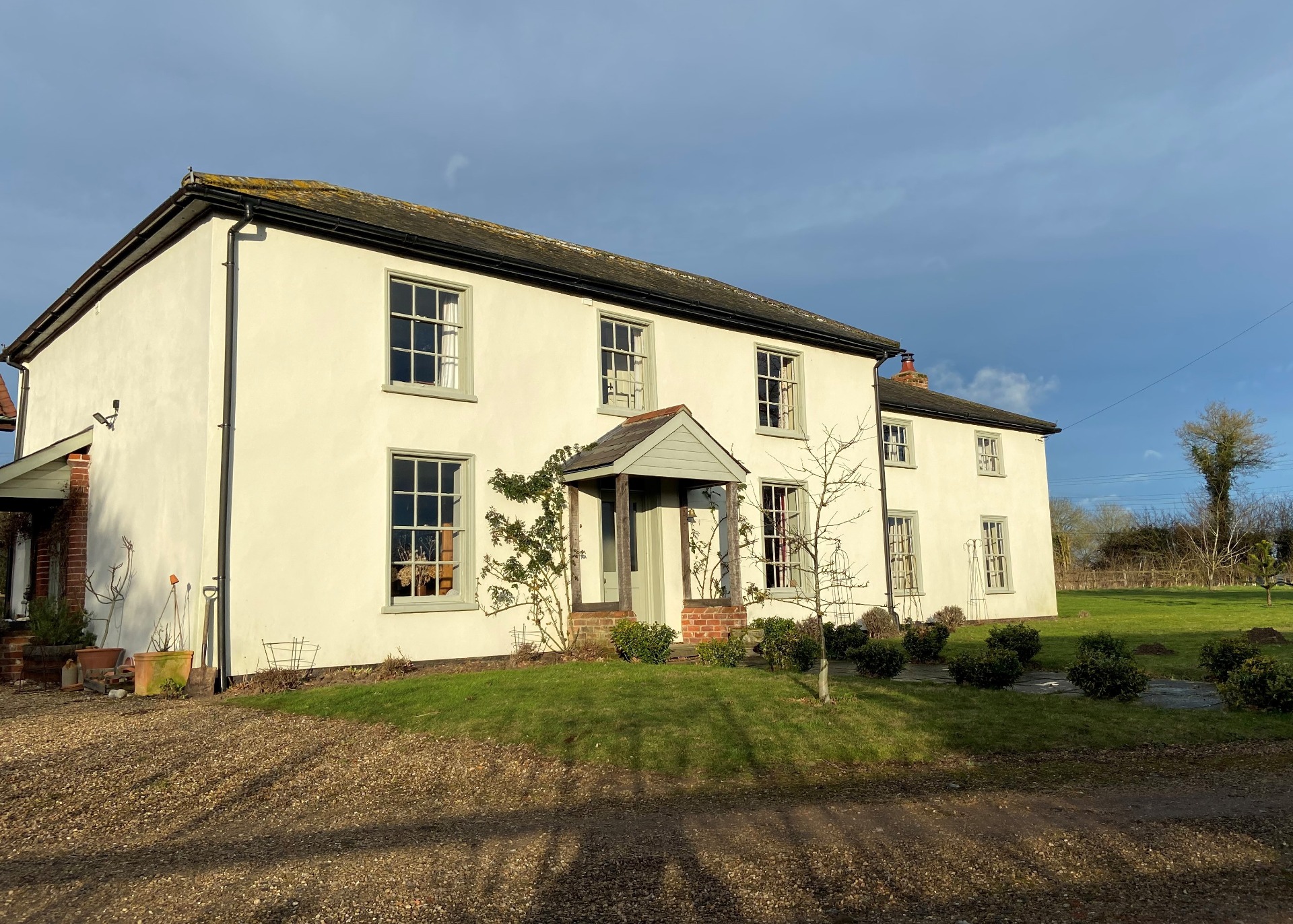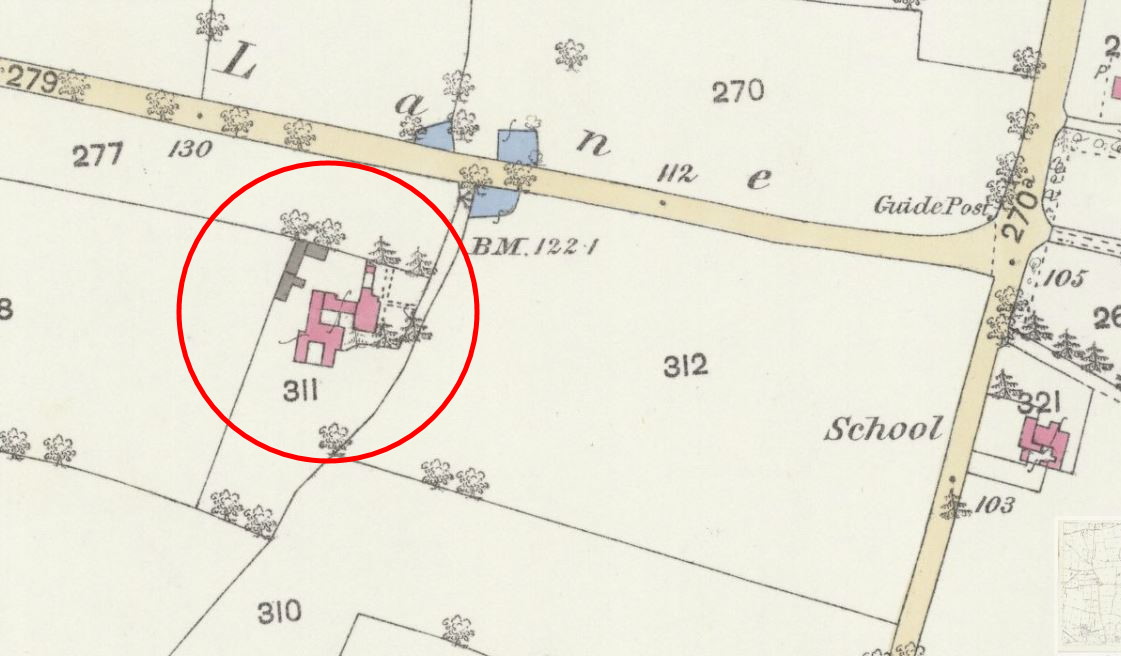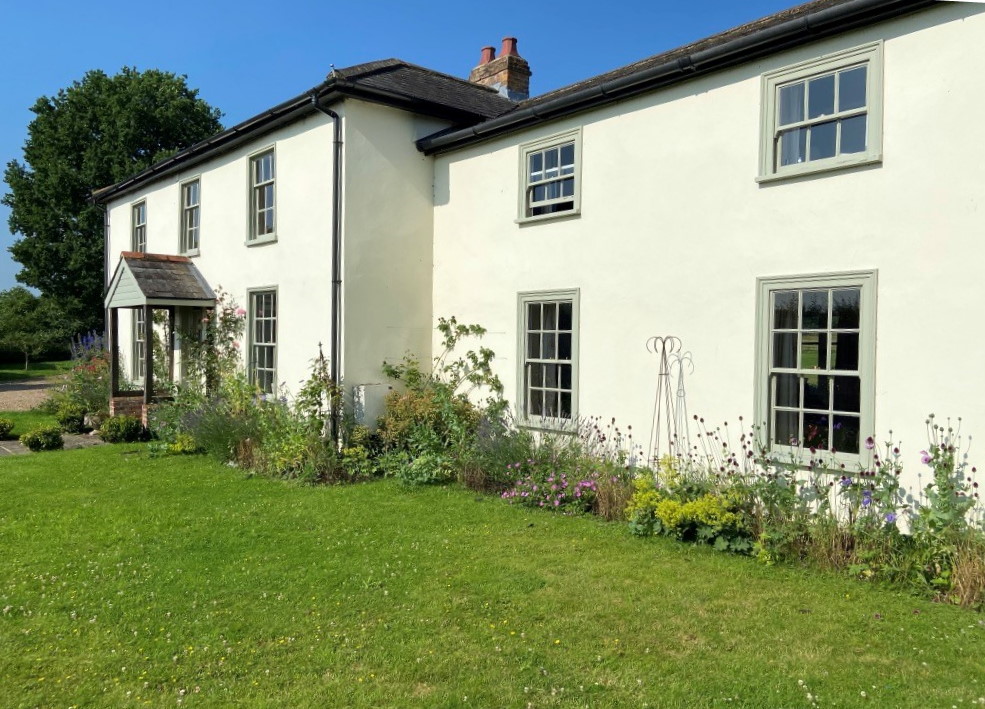
Alborough Farm - Forncett St Peter
Alborough Farm, on Mill Road in Forncett St. Peter, is named after the Alborough family who built the farmhouse and farmed there for around fifty years. There is also a house called Alborough House on Stickfer Lane in Forncett St. Mary which was almost certainly built by the same family.
The oldest known Alborough ancestor in Forncett is William Alborough, who died in Forncett St Mary in December 1812. William married Susanna Goodrum in Forncett in 1778 and they had four children; John (1781-1857), Jeremiah (1784-1871), Susanna (1788-1840) and William (1791-1871). [One of John Alborough's sons emigrated from Forncett to Natal in 1855, travelling with the Reverend John Colenso. There is consequently also a branch of the Alborough family in South Africa.]
It was William Alborough (1791-1871) who founded Alborough
Farm. William was a carpenter, and in 1814 he married Abigail Elliot from
Tharston. The couple and their family (they had ten children) lived in a rented
cottage at the very northern boundary of Forncett St Mary, on what is now known
as Loughen Common.

1882 OS map showing the cottage where the Alborough family lived in 1850
In 1850, the electoral roll records William (then aged 59) still living in that cottage, but a year later they had left. The 1851 census records William as a carpenter and a farmer of 32 acres employing three men; so, it would appear that he had "gone up in the world"! The census suggests that the family was now living at what is today called Alborough House on Stickfer Lane. At this time, William and Abigail's two elder sons, George and Jeremiah were still both living at home and were working as carpenters.
The 1852 electoral roll also lists William as having land at
Forncett Common (the common beyond Forncett End). Furthermore, his sons George
and Jeremiah now also appear on the roll. George was a
freeholder of a house and land in Forncett St. Peter "near the church";
this was almost certainly the newly-built Alborough farmhouse on Mill Road. Jeremiah
was also a freeholder of a house and land in Forncett St. Peter at "North
Field". So, between 1850 and 1852 the family seems to have come into
considerable wealth, and it is not at all clear where this might have come
from. William's father had died in 1812 and was presumably not a wealthy man,
and there was no apparent change in the circumstances of any other relatives.
The land that the Alboroughs took over in around 1851 was purchased by them in 1849 from the estate of Edward Betts who died in Forncett St Peter in July 1848. His will was contested by his heirs and that may have led to the sale of some of his land. In summary, the Alboroughs appear to have taken over four parts of the Betts estate:
- About 9 acres of arable land on Forncett Common (now Common Road)
- 9 acres and 22 perch of arable and pasture land on Stickfer Lane in Forncett St Mary
- At least 29 acres of arable land adjoining Mill Lane in Forncett St Peter
- Around 1 acre of land adjoining Northfield Lane in Forncett St Peter
It seems likely that the Alboroughs then built a number of
new houses on this land: Alborough House on Stickfer Lane, followed by Alborough
Farm on Mill Lane and Northfield Cottages (now Falgate House) on Northfield
Lane.
Alborough Farm

1883 OS map showing Alborough Farm
George Alborough farmed at Alborough Farm from 1852 until his death in 1896 (age 82). The farm grew from the initial 32 acres and at and at its peak in 1881 he was farming 65 acres and employing 2 men and a boy. George's executrix was his widowed daughter, Rebecca, and he left an estate of £312 6s. George's wife, Jane, continued to live with Rebecca at Alborough Farm until her death in 1903. Rebecca then moved to Yarmouth where she married again in 1919. She died three years later.
It's not clear what happened to Alborough Farm after Jane Alborough's death, but in 1939 the occupiers were two brothers and a sister; Frederick, Arthur and Ellen Coleman. They had previously farmed with their mother, Ann, near English's stores on Low Road (at a farmhouse now called The Homestead). The Colemans were related to the Alborough family, in that their maternal grandmother was Mary Alborough (1813-1886). All three Coleman children never married and they lived at Alborough Farm until at least 1950, when Ellen Coleman died. Frederick moved to live in Bunwell, but his executor in 1953 was the farm foreman suggesting that they probably owned the farm until that date.
In the early 2000s Alborough Farm was the home of the Henman
family; Brian, Evelyn and son Vaughan, who came from Essex. The Henmans ran an
illegal car business from the farm which became littered with scrap cars.

Vaughan (left) and Brian Henman at Alborough Farm
Their activities led to much local protest and finally to a court order requiring the site to be cleared. Photographs published in the EDP showed Vaughan Henman in an ugly confrontation with council officials.

Vaughan Henman arguing with council officials
The Henmans' cars were finally cleared from the farm and they left. The house then stood empty for some years before it was bought by a local developer in 2008. At this time the house was in a very poor state of repair.

Alborough farmhouse around 2008
The
farmhouse was then converted to its present-day form and it is once more a private
dwelling. Many of the old farm outbuildings have gone but the main house retains
much of the character of that originally constructed by the Alborough family more
than 150 years ago.

With particular thanks to Peter Schmidt-Hansen for help in researching this page
